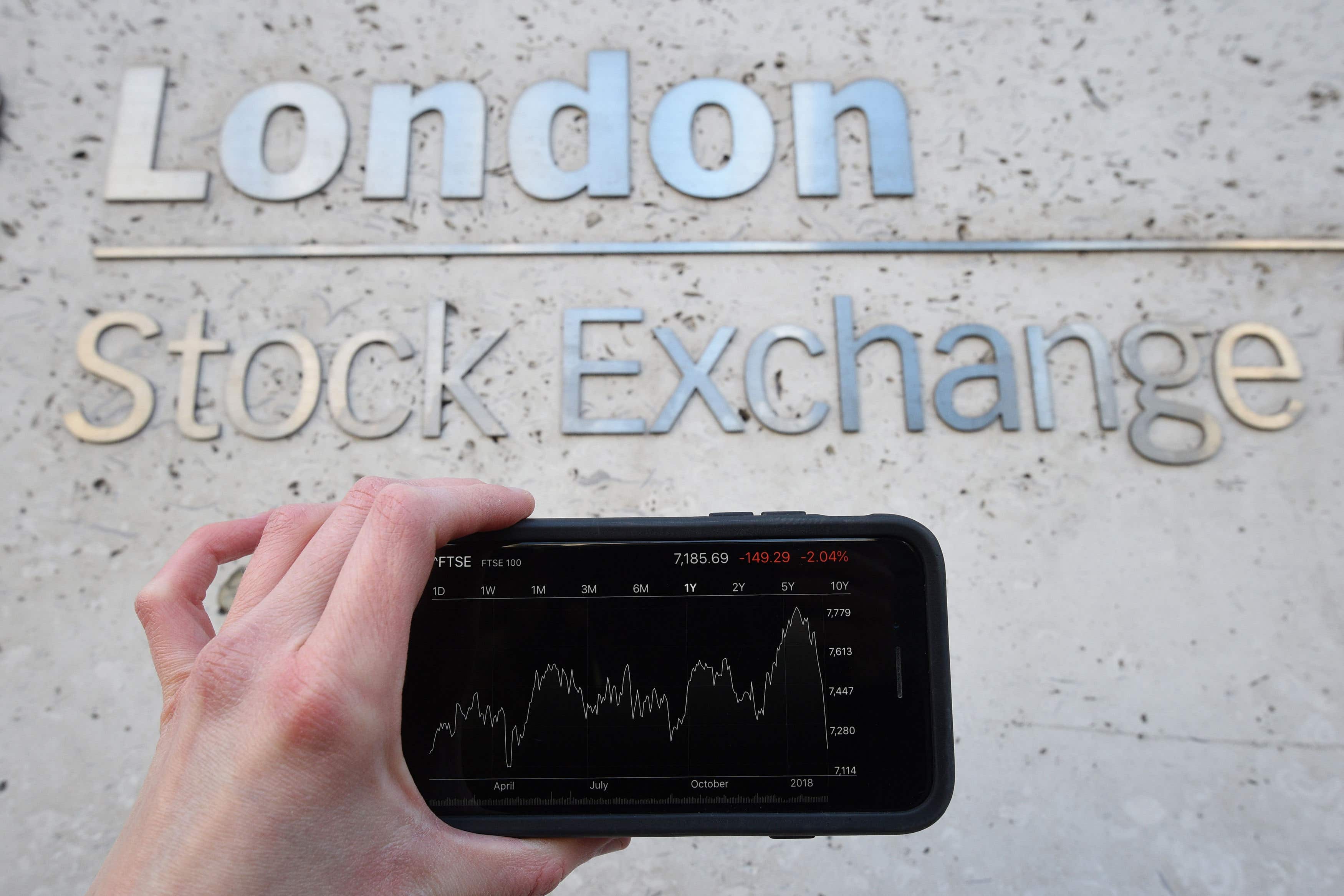FTSE 100 gains after strong US economic data, recouping early losses
The index eventually bounced back from a bad morning, after more than 90 of its stocks were in the red in early trading.

The FTSE 100 finished on a high on Thursday after initially slipping to a three-month low earlier in the day.
The blue-chip index rose 33 points to end the day on 8,186, a 0.4% increase.
It recouped losses from early trading, after the index fell in the morning with more than 90 of its stocks in the red at one stage.
Unilever was among the biggest risers, with a 6% gain after it reported fast margin growth despite weak consumer confidence in the wider economy.
The FTSE rose in the afternoon after US gross domestic product data showed annualised growth of 2.8% versus estimates of 2%, buoying the internationally weighted UK blue-chip index.
Danni Hewson, head of financial analysis at AJ Bell, said: “Sentiment was buoyed by better-than-expected US growth figures, and cooling inflation, which has given consumers a bit more space to purchase without breaking the bank or troubling central bankers.”
France’s CAC 40 fell 1.2%, while Germany’s Dax fell 0.5%.
Stateside, the S&P 500 was up 0.9% as markets were closing in London, while the Dow Jones was up 1.2%.
The pound was down 0.13% at 1.288 US dollars and was down 0.3% at 1.186 euros.
In company news, Lloyds revealed its earnings dipped this year as the banking giant generated less income despite borrowing costs remaining higher.
The banking group, which also includes Halifax and Bank of Scotland, said it made a pre-tax profit of £3.3 billion in the first six months of the year.
This marks a 14% decline from the £3.9 billion reported this time last year although it is higher than some analysts had predicted.
Shares finished 1.6% higher on Thursday.
Meanwhile, drugmaker AstraZeneca raised its sales and profit forecast for the year, after beating analyst expectations for second-quarter revenue.
The revenue increase was driven by strong demand for its cancer, rare disease and heart disease medicines.
However, higher-than-expected costs contributed to lower net income margins, which fell to 17.2% from 19% in the first quarter. Shares fell 2.1% for the day.
The price of a barrel of Brent crude oil was up 0.2% to $79.69 US dollars as markets were closing in London.
The biggest risers on the FTSE 100 were Unilever, up 274p to 4671p, British American Tobacco, up 137p to 2713p, easyJet, up 17p to 457.7p, Imperial Brands, up 66p to 2152p, and Relx, up 101p to 3583p.
The biggest fallers on the FTSE 100 were Centrica, down 14.2p to 128.85p, Airtel Africa, down 8.1p to 106.9p, Endeavour Mining, down 126p to 1680p, Pershing Square, down 274p to 3820p, and Fresnillo, down 25p to 582p.